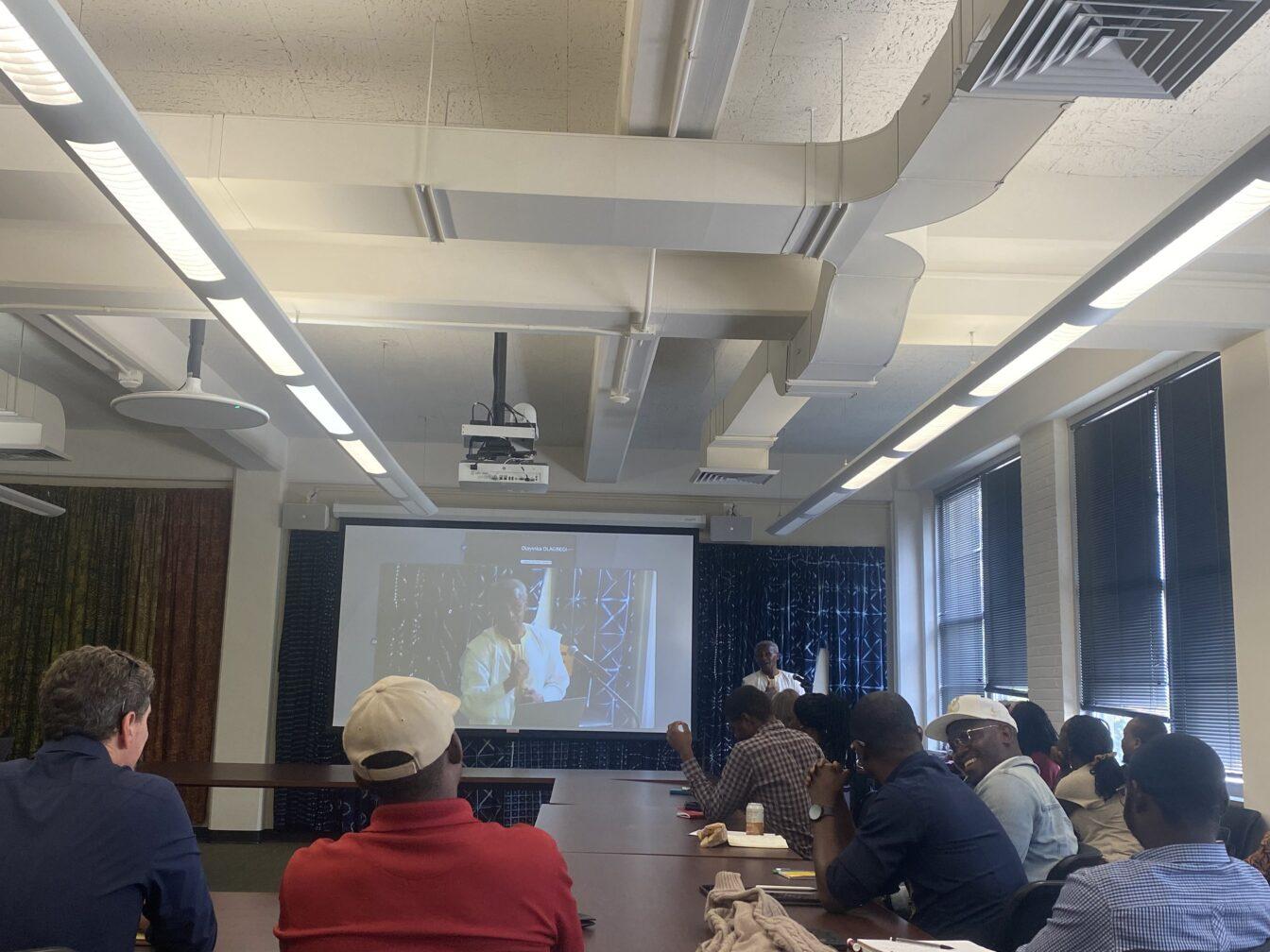“WHO stands for White Health Organization — not World [Health Organization],” scientist and past president of the Nigerian Academy of Science Oyewale Tomori said at the weekly event Africa at Noon Oct. 4.
One problem with the current health situation is the current neo-colonialism of Africa, where Tomori said, “Western aid is not helping.”
While Africa is now independent from European colonialism, they still fall back to Europe and America for help, Tomori said.
“Thirty years of help, 60 years of independence [and] we are not actually free,” Tomori said.
Africa continuing to fall back on Europe and America showed especially when mpox was first discovered in Denmark, Tomori said. Though this virus had existed in Africa for almost 50 years before its first discovery, vaccines were rolled out only when it was discovered in Europe.
This is just one of many times the WHO disregarded African countries in a health crisis, Tomori said.
Aside from the international disregard for health in Africa, Tomori discussed problems domestically in African countries. The main problem Tomori said was government.
“Without good leadership, there is no escape,” Tomori said.
According to Tomori, in many countries in Africa, the leadership has been overall corrupt, resulting in the health crisis getting worse. Tomori compared some African countries’ leaders to the Ebola outbreak as a way to describe the damaging effect some leadership has. It is common for leaders in African countries to take almost 80% of the country’s earnings, resulting in the rest of the country to struggle.
Tomori said the reason countries like India were able to flourish further after colonialism was good leadership, although back in 1947 it was asking Canada for vaccines. But currently, India produces vaccines for Canada.
Africa isn’t actually poor, it is rich in resources, but it is the corruption of the government that leads to having little health services in comparison to the rest of the world, according to Tomori.
To start solving the health crisis, Tomori said the rest of the world needs to stop treating Africa like its own country and instead go to each country to address the problems there.
The spread of knowledge from colleges and universities in Europe and America can be brought back to African countries, Tomori said. Instead of people having to go out and get more education, it should be accessible to where they are, and that will help the political and health crisis in many African countries.
Tomori said the best way to fix the problem is to start talking about it with others and get politicians to talk about the health crisis.
“Your generation is a lot smarter than mine,” Tomori said.
It’s important people start collaborating to get to a world where everyone has access to healthcare, Tomori said.


